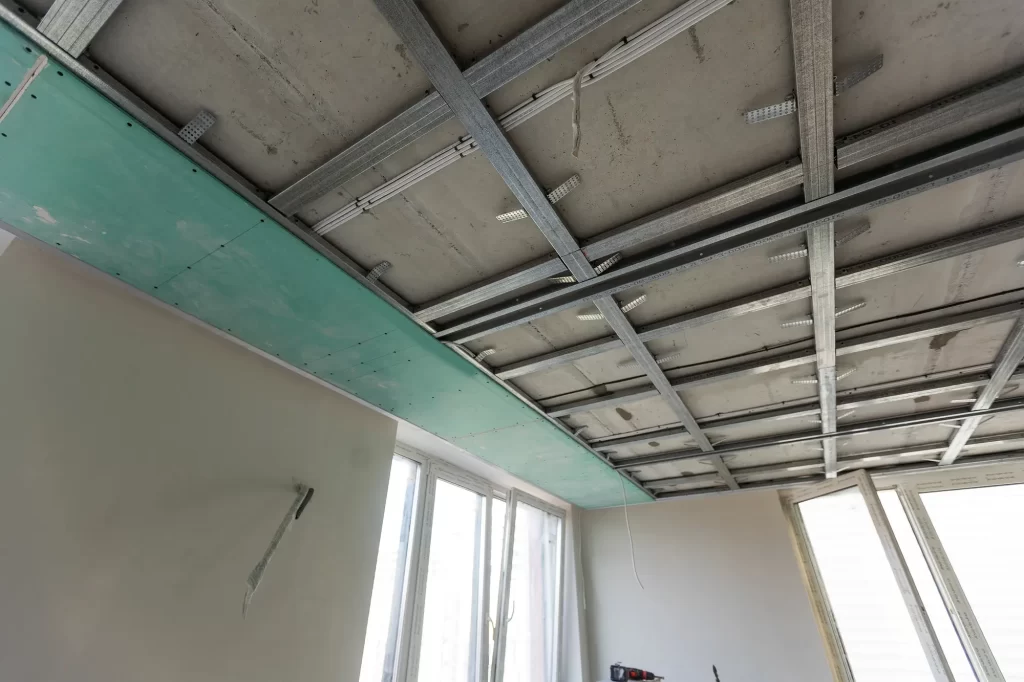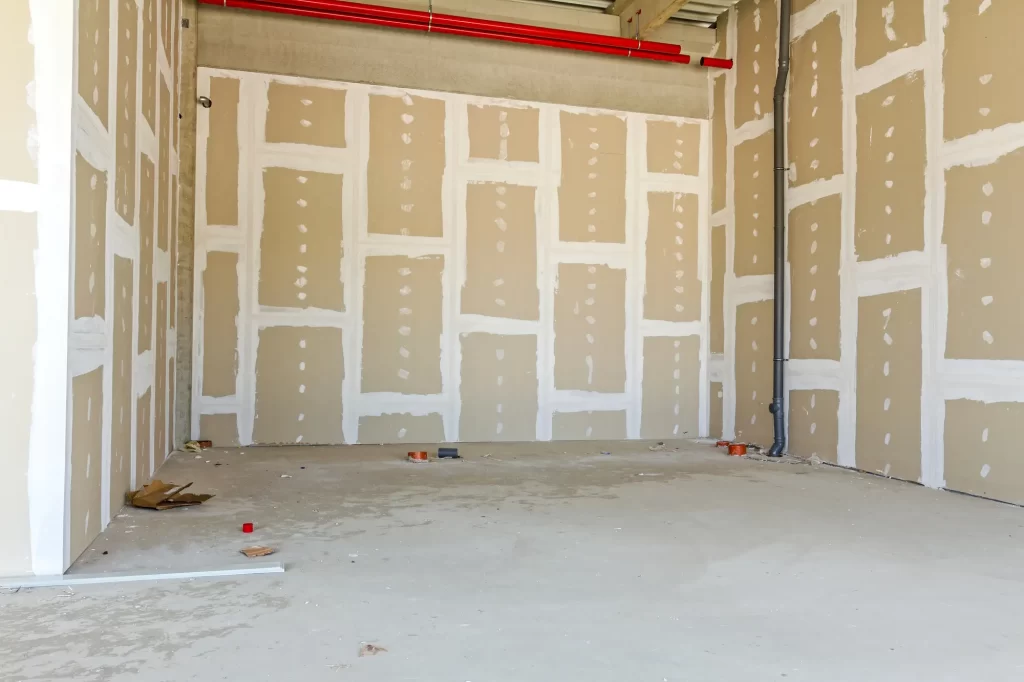How Much Does It Cost to Drywall a Garage in 2024? A Complete Guide to Drywall Installation for Your Detached Garage
Summary: Drywalling your garage can transform your garage space from a cold, unfinished shell into a versatile extension of your living area. Whether you’re planning to drywall a detached garage or insulate and finish drywall in your attached space, understanding the process, costs, and materials involved is crucial. This article will guide you through the average cost to drywall a garage in 2024, key installation tips, and practical advice to help your project succeed. Read on to ensure your garage drywall project starts here with confidence!
Why consider Drywall Sheet – Your project starts here
Adding drywall in a garage isn’t just about aesthetics; it improves insulation, adds fire protection, and enhances the overall value of your home. By finishing the drywall in a garage, you make it safer and more functional as a potential living space or workshop.
Drywall offers a fire-resistant layer of treated gypsum, making it highly resistant to fire and providing an extra measure of safety. Additionally, drywalling a garage improves the soundproofing and visual appeal of the space, turning it into a potential extension of your living space.
How Much Does It Cost to Drywall a Garage Installation in 2024?
The cost to drywall a garage depends on several factors, including the size of the garage and the type of drywall used. On average, the cost ranges from $1.50 to $3.50 per square foot for basic drywall installation. However, specialty options like fire-resistant or moisture-resistant drywall may increase this cost.
If you want to install drywall in a detached garage, you should account for additional insulation and labor costs. In 2024, expect the average cost to drywall a garage to start at around $1,200 for a single-car garage and can go up to $5,000 or more for larger, more complex projects.
What Types of Drywall Are Best for a Garage?
Different types of drywall offer various benefits. The most common options include:
- Standard drywall: Costs the least and is used to finish walls and ceilings in garages without specific needs.
- Fire-resistant drywall: Ideal for enhancing fire protection, especially in garages that share walls with the main living space.
- Moisture-resistant drywall: Recommended for garages exposed to high humidity or unheated garages, where moisture might be an issue.
Choosing the right type of drywall can affect both the cost and performance of the finished project.

Step-by-Step Guide to Drywalling a Detached Garage
1. Preparation: Start by measuring the garage’s dimensions to determine the amount of drywall you need. Remember to find the studs behind the walls and mark their locations for proper installation.
2. Installing the Drywall Panels: Secure the drywall sheets to the studs using drywall screws and a power drill. Ensure the drywall panels are cut to fit properly using a drywall knife to cut and adjust their size.
3. Taping and Mudding: Apply drywall tape along the joints between sheets of drywall. Follow this with a coat of joint compound, smoothing it out for a seamless finish.
4. Sanding and Finishing Touch: After the joint compound has dried, sand the surface to achieve a smooth finish. This step is essential before applying any paint or texturing to the drywall in place.
Should You Hire a professional to Install Drywall Contractor or DIY?
Hiring a Professional Drywall Contractor: If you don’t have a lot of experience with drywall installation, hiring a drywall contractor might be the best option. Professionals have the right tools, experience, and can complete the job faster. The average cost for professional drywall installation includes labor fees, typically ranging from $40 to $60 per hour.
DIY Drywall Installation: For those who want to install drywall themselves, the cost can be significantly reduced. However, you’ll need tools such as a drywall knife, power tools, joint compound, drywall tape, and access to sturdy ladders. DIY is also easier for smaller projects and can save you up to 50% on labor costs.

How to Choose the Right Drywall Size for Your Garage?
Standard drywall sheets come in various sizes, commonly 4×8 feet or 4×12 feet. The thickness of the drywall is another consideration; most garage drywall installations use drywall that is 1/2 inch thick, though 5/8 inch thick drywall is preferred for enhanced fire resistance.
Do You Need to Insulate Before Drywalling?
Insulation Options for Garages: Insulating your garage before drywall installation helps regulate temperature and reduce energy costs. Depending on your budget, you can choose between fiberglass batt insulation or spray foam insulation.
Cost to Insulate a Garage: The cost to insulate a garage typically ranges from $0.50 to $2.00 per square foot. While not mandatory, insulation is crucial if you plan to convert your garage into living space.
Frequently Asked Questions About Garage Drywall
Q1: What’s the best drywall for a detached garage? For detached garages, fire-resistant and moisture-resistant drywall are recommended due to exposure to temperature fluctuations and potential fire hazards.
Q2: How long does it take to drywall a garage? A standard single-car garage takes around 2-4 days, including taping and mudding, while larger projects can extend to a week or more.
Common Mistakes to Avoid When Drywalling Your Garage
1. Skipping Insulation: Not insulating your garage before drywall installation can lead to temperature control issues and increased energy bills.
2. Improper Taping and Mudding: Rushing through the taping and mudding process can result in uneven walls and visible seams.
3. Using the Wrong Drywall Type: Standard drywall may not suffice in a garage. Moisture-resistant or fire-resistant drywall is often the better choice, especially in a detached garage or an unheated space.
What Are the Benefits of Drywalling Your Garage?
Enhanced Safety: Drywalling your garage adds a layer of fire protection, providing critical time in the event of a potential fire.
Improved Aesthetics: A finished garage looks cleaner and more organized, increasing your home’s overall appeal and potential resale value.
Additional Living Space: Drywalling the garage can make it an extension of your home, suitable for workshops, home gyms, or storage without sacrificing appearance or comfort.
When to Consider Using Fire-Resistant or Moisture-Resistant Drywall?
For garages used as workshops or exposed to moisture, moisture-resistant drywall is recommended to prevent mold and mildew. If the garage shares walls with living spaces, fire-resistant drywall is a must to comply with building codes and enhance safety.
How to Estimate the Total Cost of Drywalling a Garage in 2024?
To estimate the cost of drywalling the garage:
- Calculate the total square footage: Multiply the length by the width of each wall or ceiling.
- Factor in material costs: Include drywall sheets, joint compound, drywall tape, and other supplies.
- Add labor fees if hiring professionals: Consider the hourly rate and total hours required.
- Include insulation costs if applicable: This ensures a more energy-efficient and comfortable garage space.
Estimated Cost Breakdown:
- Materials: $400 – $1,500 (depending on drywall type and garage size)
- Labor: $800 – $2,500 (depending on project complexity)
- Total Average Cost: $1,200 – $5,000
Conclusion: Key Points to Remember
- Cost Factors: Size, type of drywall, insulation, and labor significantly affect the cost to drywall a garage.
- Drywall Types: Choose fire-resistant or moisture-resistant drywall based on your garage’s needs.
- DIY vs. Professional: DIY can save money but requires time and tools; professional services ensure speed and expertise.
- Insulation: Not mandatory but highly recommended for comfort and energy efficiency.
- Common Pitfalls: Avoid improper taping, choosing the wrong drywall type, or neglecting insulation.
With these insights, your project to drywall your garage in 2024 can proceed smoothly and efficiently, providing you with a more valuable, functional, and safe space.
